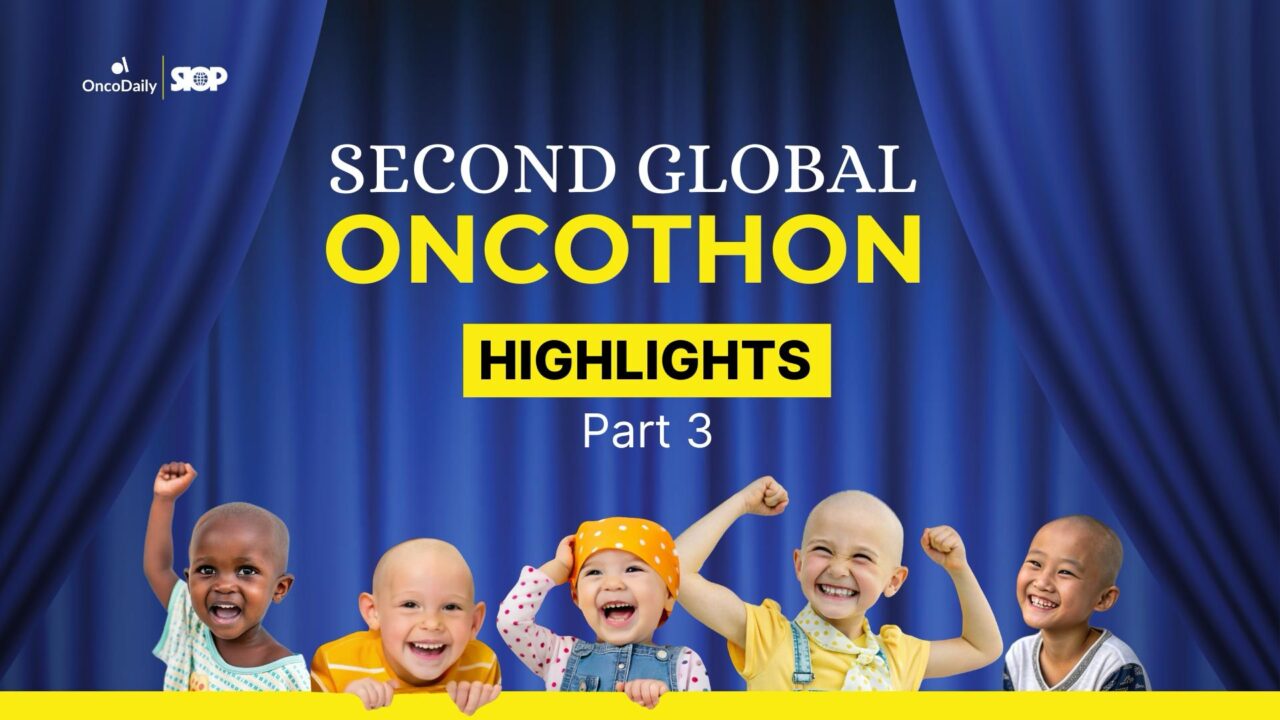OncoDaily and the International Society of Pediatric Oncology (SIOP) are hosting the Second Global OncoThon, a 24-hour virtual event on February 15, 2025, raising funds and awareness for pediatric cancer research. Despite being a leading cause of childhood deaths, pediatric cancer receives far less funding than adult cancers, limiting treatment options.
With nearly half a million new cases each year, children face a critical gap in life-saving therapies. The OncoThon is bringing people together to share real stories, take action, and push for change. No child should fight cancer alone – now is the time to make a difference.
So far, inspiring speakers have shared powerful stories and groundbreaking insights. Here are some highlights from their talks as we continue this global movement to ensure no child fights cancer alone.
Gertjan, Gert-Jan Kaspers, Director of Academy and Outreach at the Prinses Máxima Centrum voor kinderoncologie, emphasized the importance of collaboration between hospitals in limited-resource settings and research centers.
He highlighted that achieving higher cure rates depends on ensuring that more children have access to treatment. He also stressed the crucial role of governments and cancer organizations in this process, stating, “Together, we can improve things.”
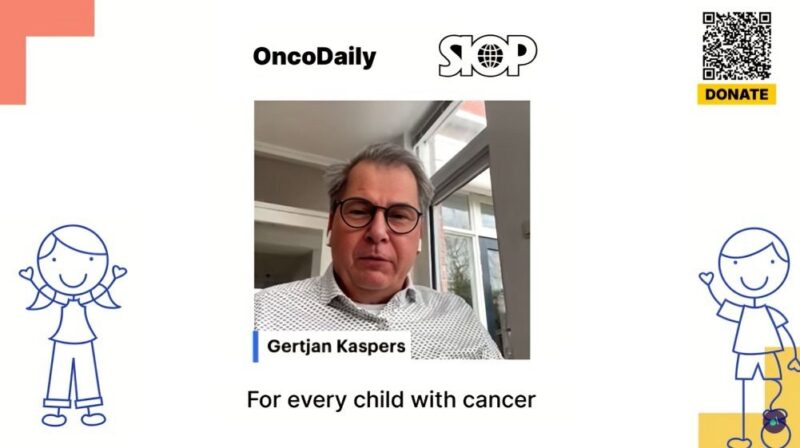
CS Pramesh, Director of TATA MEMORIAL HOSPITAL and Convener for the National Cancer Grid, underscored the power of collaboration in pediatric cancer care. He highlighted how cooperative pediatric oncology groups serve as a model for adult cancer treatment, demonstrating the impact of teamwork in improving outcomes.
Pramesh emphasized the importance of equitable cancer care, the need for research tailored to low- and middle-income countries, and the role of global partnerships in reducing the burden of childhood cancer. He called for unity in global cancer control efforts, turning challenges into opportunities for progress.
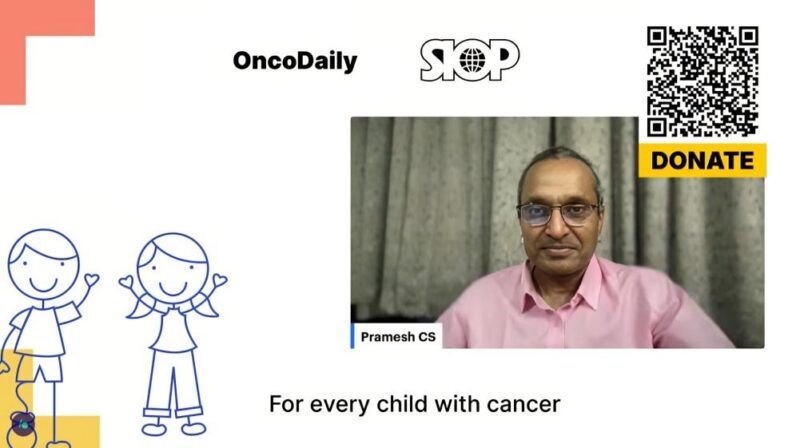
Giuseppe Curigliano, President-Elect of the ESMO – European Society for Medical Oncology, spoke about the critical need for increased attention and investment in pediatric cancer, highlighting its underrepresentation in many countries.
He emphasized that OncoThon is a great initiative, as pediatric cancer often receives less funding and research focus. He called for more research into the biology of pediatric cancer and the implementation of precision medicine in both treatment and research.
Additionally, Curigliano stressed the importance of global cooperation to improve pediatric cancer treatment outcomes, advocating for greater collaboration to tackle these challenges on a global scale.
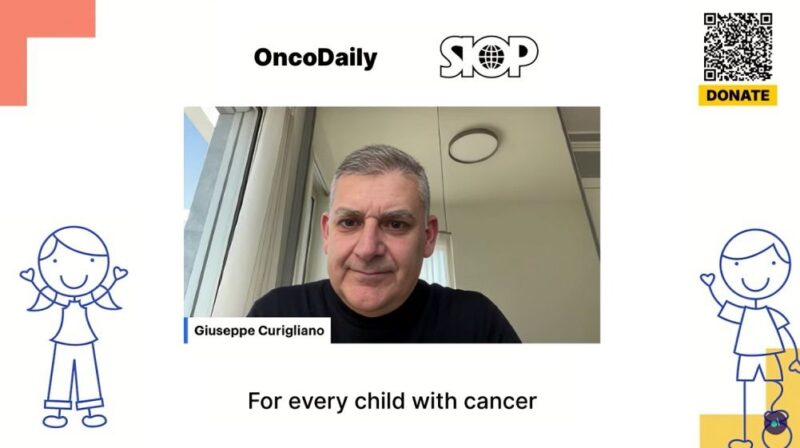
Hesham ElGhazaly, Founder and CEO of Alfa Cure Oncology Center and Professor of Clinical Oncology at Ain Shams University, discussed the vision of a future free of cancer for every child, focusing on the challenges of pediatric cancer care in Egypt. He emphasized the need to improve care in low-income countries and the importance of ongoing trials.
Elghazaly highlighted the value of global collaborations, which provide opportunities to learn more and bring collective efforts to make a real difference. He also pointed out that one of the most hopeful aspects of pediatric oncology is the improving survival rates, offering greater hope for children facing cancer.
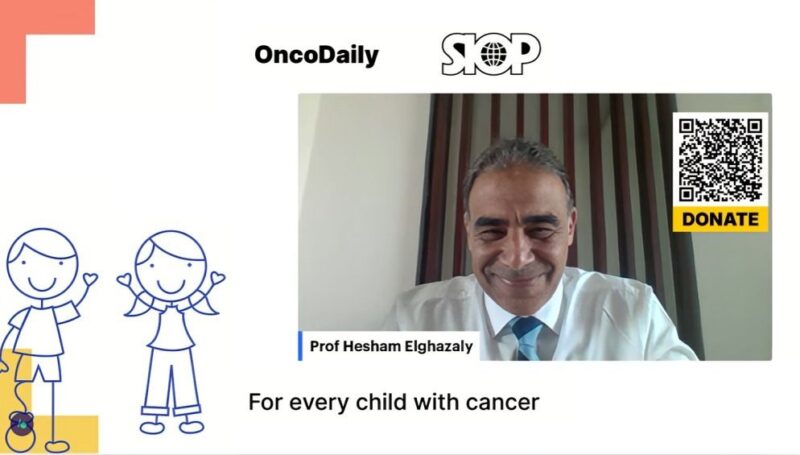
Manette le Grange, Executive Director of Access to Health Care at Servier, introduced ACT for Children, a collaborative initiative aimed at improving cure rates for children with cancer in vulnerable countries through sustainable and measurable solutions.
She emphasized the strength of the initiative’s partnerships, which include the International Society of Paediatric Oncology – SIOP, World Child Cancer, and several regional medical institutions. ACT for Children works to ensure access to life-saving treatments, innovative pediatric cancer medicines, and best-in-class clinical management, with a goal of significantly increasing survival rates for children in low- and middle-income countries.
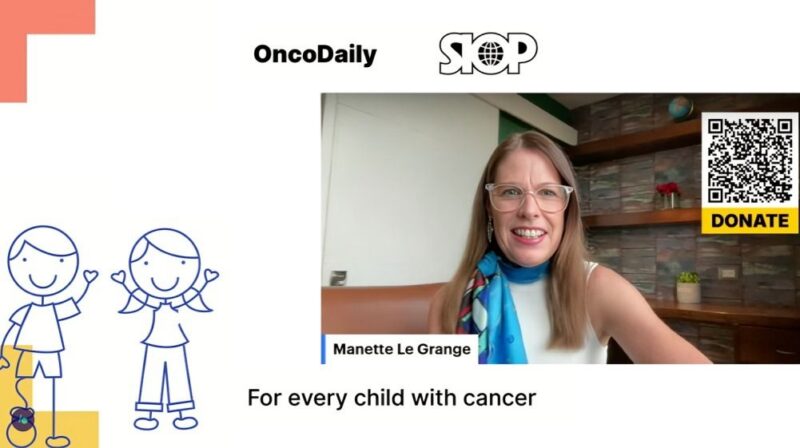
Scott Howard, Past General Secretary of the International Society of Paediatric Oncology – SIOP and CEO and Founder of Resonance Oncology, spoke about ‘ACT for Children in Armenia’ a special approach working directly with hospitals through adaptive measures to ensure access to high-quality medication for children with cancer.
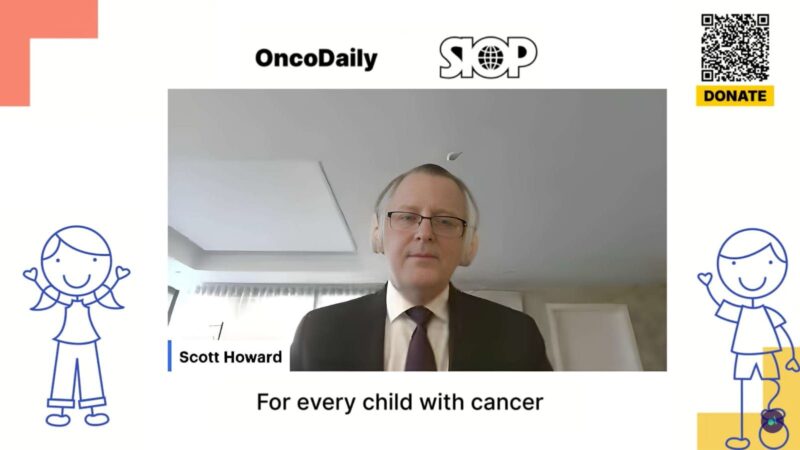
Prof. Gevorg Tamamyan, Editor-in-Chief of OncoDaily, President of SIOP Asia Continental Branch, and Pediatric Oncology East and Mediterranean (POEM) Group, discussed the challenges faced by Armenia – a small country with limited market appeal for pharmaceutical companies.
He highlighted how, as a low- and middle-income country (LMIC), the high cost of medicines presents a significant barrier, even though City of Smile covers treatment expenses. However, new drugs remain costly, making initiatives like ACT for Children crucial in fostering cooperation between hospitals, pharmaceutical companies, and key stakeholders.
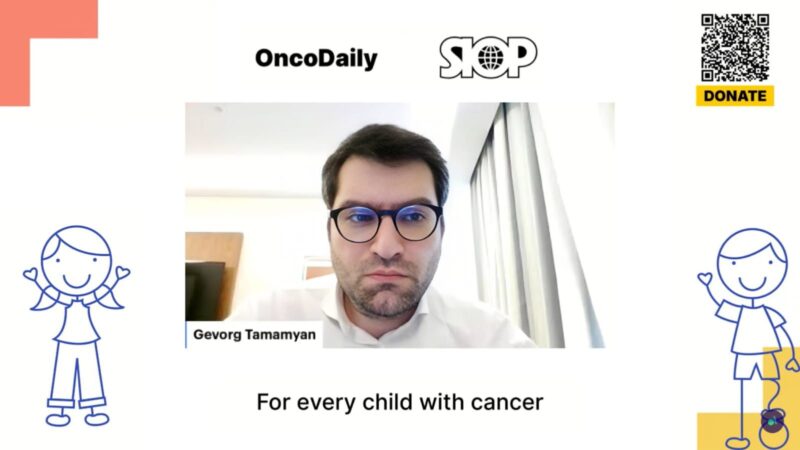
Federico Guillermo Antillon Klussmann, International Society of Paediatric Oncology – SIOP GHN Committee Co-chair, talked about the impact of hospital-based training in improving pediatric cancer care in Guatemala, highlighting how hands-on learning for the entire medical team – doctors, data managers, nurses, and essential staff – ensures every aspect of patient care is strengthened.
He emphasized the power of a hospital-to-hospital model, which allows direct knowledge exchange from experienced global centers, adapted to local needs.
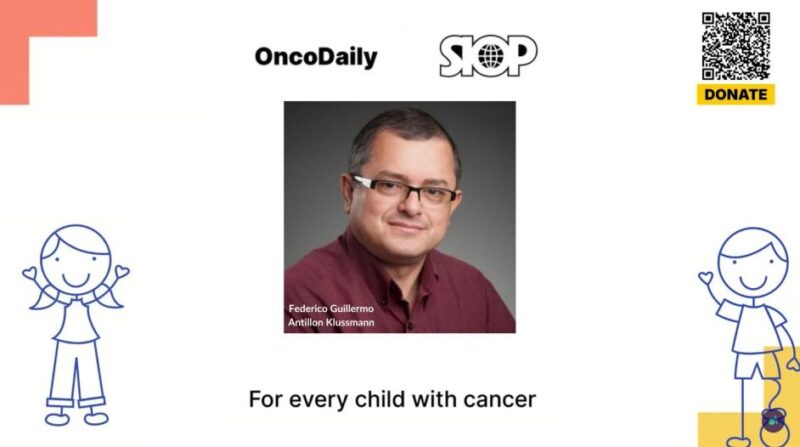
Wojciech Mlynarski, Professor of Pediatrics in the Department of Pediatric Oncology and Hematology at the Medical University of Lodz, spoke about the significant challenges faced by low-income countries in providing effective cancer treatment and care.
He emphasized the importance of focusing on each child worldwide, recognizing the issue not just as a medical one, but also an economic challenge.
He shared his insights on Gaza, where distance and the lack of essential medicines make it difficult to access medical care. He stressed the goal of treating children in all countries, pointing out that in Poland, strong communication between pediatric oncologists and surgeons helps overcome some barriers.
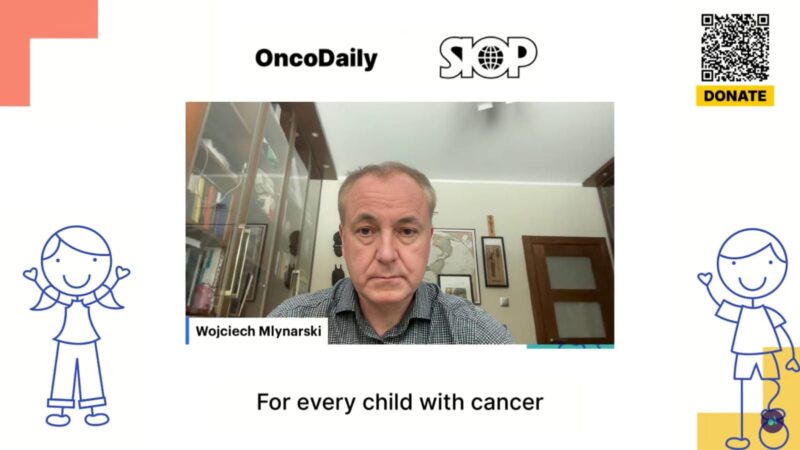
Sean Lybrand, Global Strategic Lead for Amgen’s Access to Healthcare unit, highlighted the critical gaps in universal healthcare coverage, stressing that accessibility remains a major challenge.
He emphasized that pharmaceuticals are just one component of a broader healthcare strategy that requires comprehensive management and collaboration. During Oncothon, he stated, “Everyone is a part of the solution,” underscoring the need for collective action in improving cancer care.
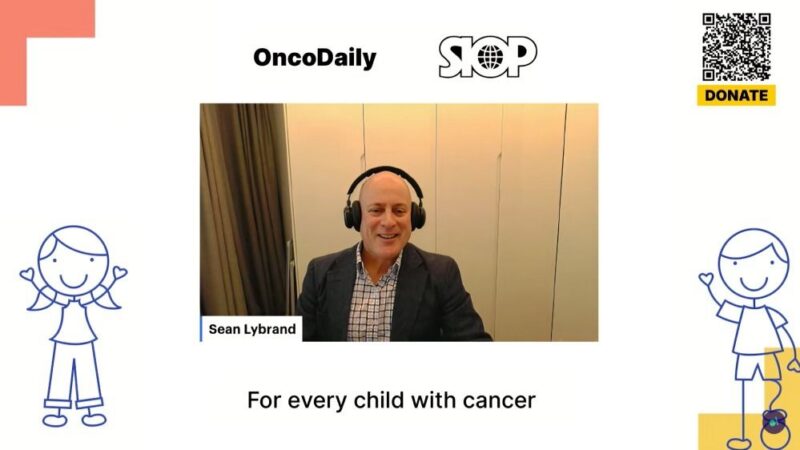
Garik Sagoyan, General Secretary of the Russian Society of Pediatric Oncologists and Hematologists, spoke about International Childhood Cancer Day, emphasizing its importance in raising awareness about childhood cancer worldwide.
He showed keen interest in joining the Eurasian School of Oncology and discussed how collaborative efforts are crucial in advancing pediatric oncology.
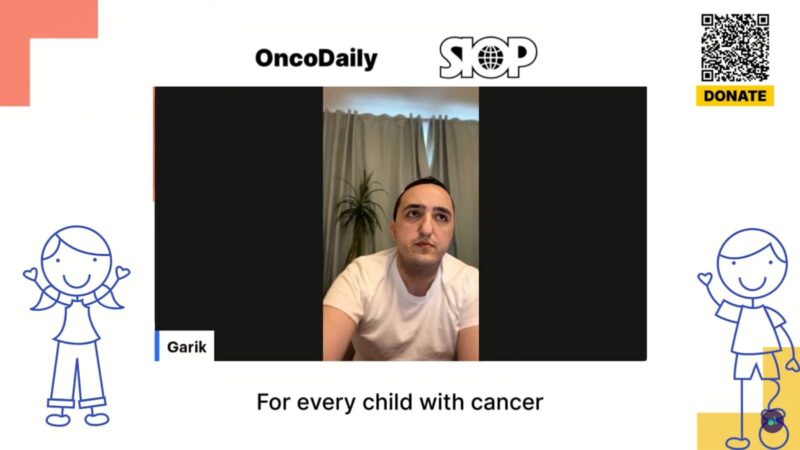
Hani Saleh, Head of the Pediatric Hemato-Oncology Department at Agusta Victoria Hospital, discussed the challenges of providing pediatric cancer care to Palestinian children in the West Bank and Gaza.
He highlighted the difficulty of bringing children to the hospital for treatment and the importance of international collaborations and cancer centers in neighboring countries like Jordan.
Saleh emphasized the hospital’s efforts to improve facilities, raise awareness among families, and engage with global networks to enhance care and outcomes for children with cancer.
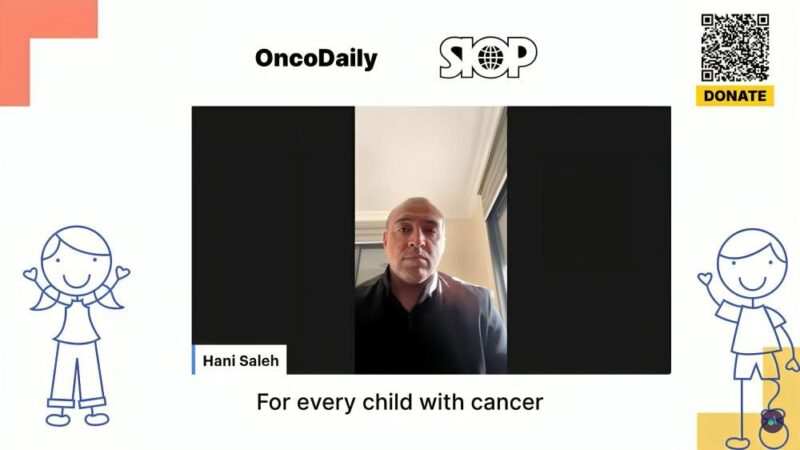
Kirill Kirgizov, Deputy director of the Institute of Pediatric Oncology and Hematology in the Nikolay Blokhin National Medical Research Center of Oncology talked about the Eurasian School of Oncology and Hematology, supported by International Society of Paediatric Oncology – SIOP and World Health Organization, enhancing specialist training in low- and middle-income countries (LMICs), as well as improving drug availability and treatment outcomes.
He highlighted the significance of growing global collaboration, education, and research, quality care and its advancement. He also mentioned that studies under WHO and SIOP, including research on Rituximab availability, are driving progress despite existing challenges.

Martha Raymond, Founder and CEO of The Raymond Foundation, Inc. and Executive Director of GI Cancers Alliance, talked about mission of the GI Cancers Alliance, emphasizing their commitment to representing the community, patients, and children diagnosed with GI cancers. She highlighted the importance of advocacy, research, and collaboration in improving outcomes for those affected.
During Oncothon, she stated, “Our work is about amplifying the voices of GI cancer patients and ensuring they receive the support they need.”
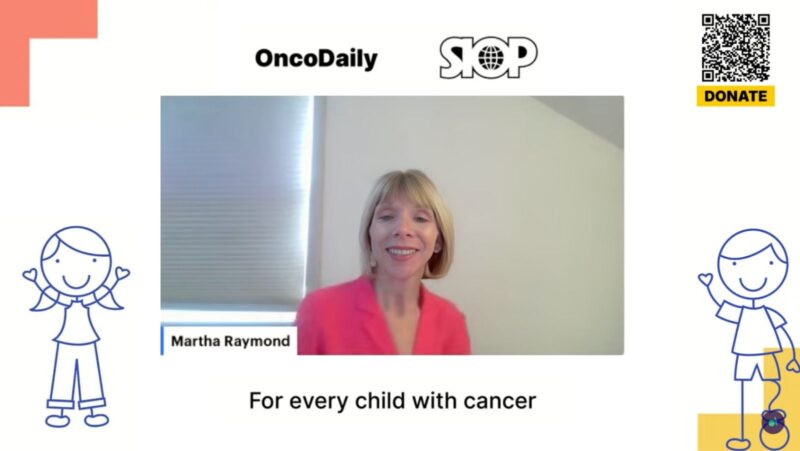
Garo Armen, Co-Founder and Chairman of Agenus, addressed critical issues in pediatric cancer treatment, particularly the obstacles posed by regulatory frameworks.
“Funding is essential, but alone it isn’t enough. If we keep funneling these dollars into system that is paralyzed by regulators and outdated thinking, we’re merely throwing resources into a black hole.”
Armen shared a personal story about a friend’s child who passed away from cancer due to a lack of access to experimental treatments, highlighting the urgency of providing innovative therapies. He emphasized the need for speed, agility, and collaboration in the medical and regulatory fields to expedite treatment for children.
He urged the medical community, researchers, and industry leaders to prioritize patient needs over comfort zones and outdated protocols and called for a shift in thinking to ensure that resources are deployed in ways that save lives and address the suffering of children today.
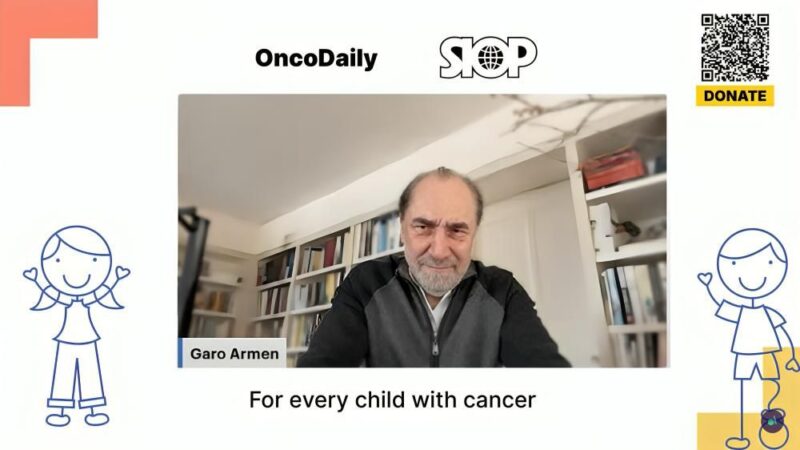
Guillermo Chantada, President of the International Society of Paediatric Oncology – SIOP, emphasized the crucial role of research in improving cancer care, particularly in low- and middle-income countries (LMICs).
“Research is not a luxury, it is a necessity in LMICs.”
He highlighted the financial barriers to research and the need for tailored evidence generation, as cancer in these regions often presents differently than in high-income countries.
Furthermore, he mentioned the necessity of international collaboration and data sharing to drive progress, calling for more advocacy to overcome barriers to global cooperation. Chantada concluded by reiterating that advances in cancer care will not happen if research remains isolated.
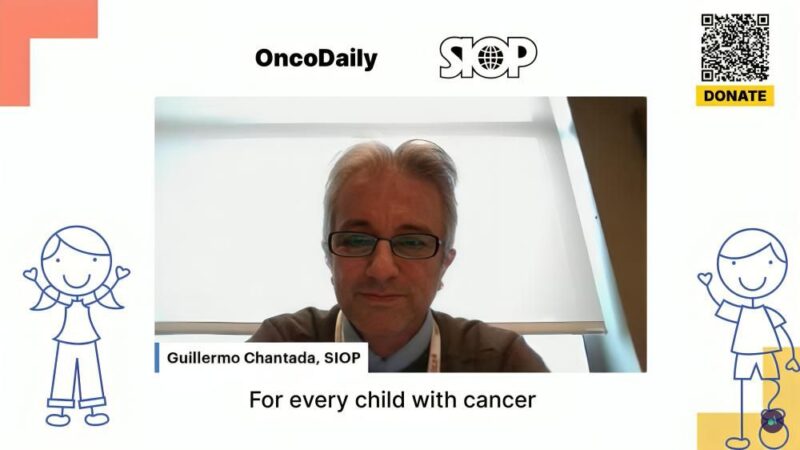
Lillian Siu, President-Elect of American Association for Cancer Research talked about the broader challenges facing cancer research, highlighting the critical need for collaboration, funding, and patient-centered care.
While acknowledging the unique difficulties of pediatric oncology, she emphasized that translating scientific progress into real-world treatments requires sustained investment and cooperation among researchers, clinicians, and funding agencies.
She also stressed the importance of leveraging technology and advancing knowledge to improve cancer care and ultimately eradicate the disease. Additionally, she underscored the value of patient involvement, including children, in shaping their own treatment decisions to ensure a more holistic and impactful approach to care.

Andrea Cappellano, President of the Latin American Society of Pediatric Oncology (SLAOP), spoke about the significant challenges faced in Latin America regarding pediatric cancer.
She highlighted that 29,000 pediatric cancer patients are in Latin America, with 40 percent diagnosed at later stages. The region struggles with a survival rate below 50 percent, making early and accurate diagnosis and access to medicines crucial.
She emphasized the necessity of support for diagnostic improvements, medications, and research, and stressed the importance of days like today to help everyone understand why collaboration is essential to advance in pediatric oncology.
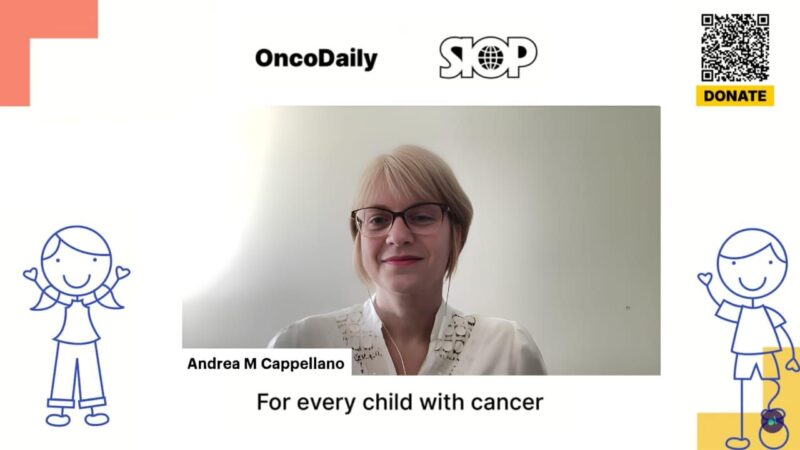
Courtney Sullivan, SIOP Nursing Network Chair, shared her insights on the future of pediatric oncology nursing, reflecting on the challenges and opportunities ahead. She emphasized the global nursing workforce crisis, particularly the need for specialized pediatric oncology nurses, and the importance of advocating for specialization at the governmental level.
During OncoThon, she stated, “Thoughtful and creative nursing care models will continue to be a priority for research as we navigate varied resource settings.”
She also highlighted the role of families, saying, “Parents and families truly know the most about their children, and empowering them through health literacy is essential in improving care outcomes.”
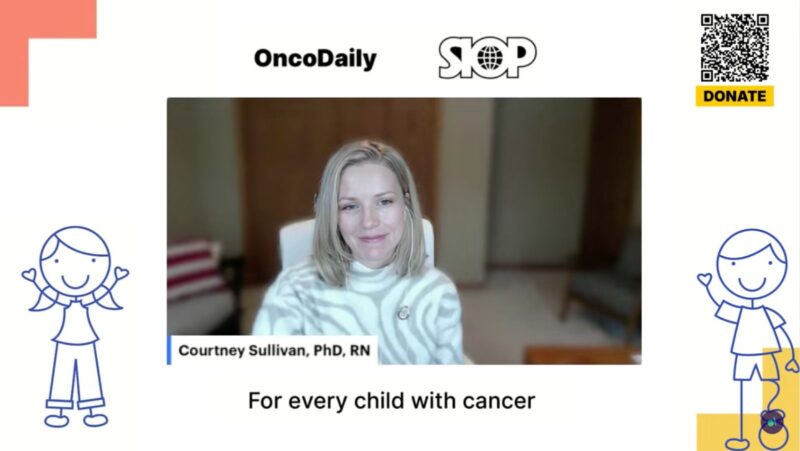
Donna Johnston, Chief of the Division of Hematology/Oncology at the Children’s Hospital of Eastern Ontario, spoke about the privilege of working in Ontario, where resources support the mission to cure everyone.
She also shared her gratitude for serving as the local organizing committee chair for SIOP 2023, emphasizing the importance of gathering people to work together for the advancement of pediatric oncology.
She expressed her thankfulness for this day to raise awareness and increase progress in childhood cancer. When asked about the challenges in treatment in developed countries, she highlighted the high cure rates but acknowledged the secondary lifelong effects of treatment.
She discussed the challenge of providing novel therapies, noting that options like proton therapy are not yet available in Canada, making access to advanced treatments a significant issue due to cost and availability.
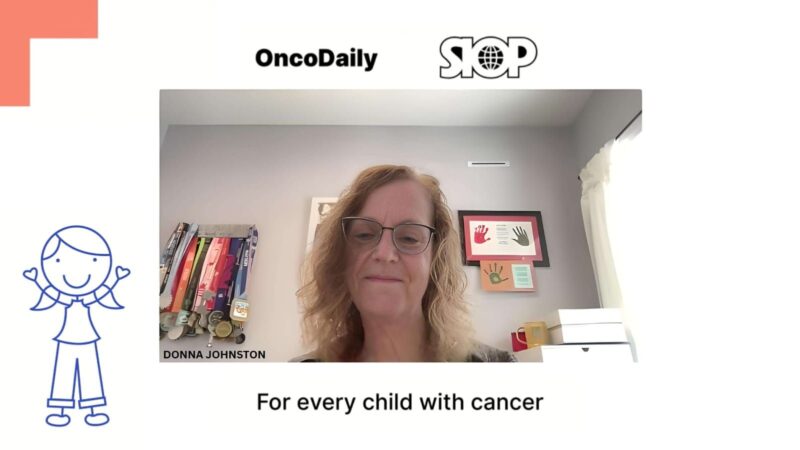
Kenji López-Cuevas, MPP, President and Founder of the Fundación Cáncer Warriors de México, discussed the challenges and initiatives in addressing childhood cancer in Latin America, particularly in Mexico.
He highlighted the alarming statistics that 9,000 children are diagnosed with cancer annually in Latin America, with 10,000 dying each year, making childhood cancer the leading cause of death from illness in Mexico. He stressed the importance of early diagnosis and timely access to treatment, and the need for strong public policies and legislation to improve cancer care.
López Cuevas also emphasized that, while legal amendments are crucial, securing the necessary economic resources is vital for the successful execution of national cancer control plans.
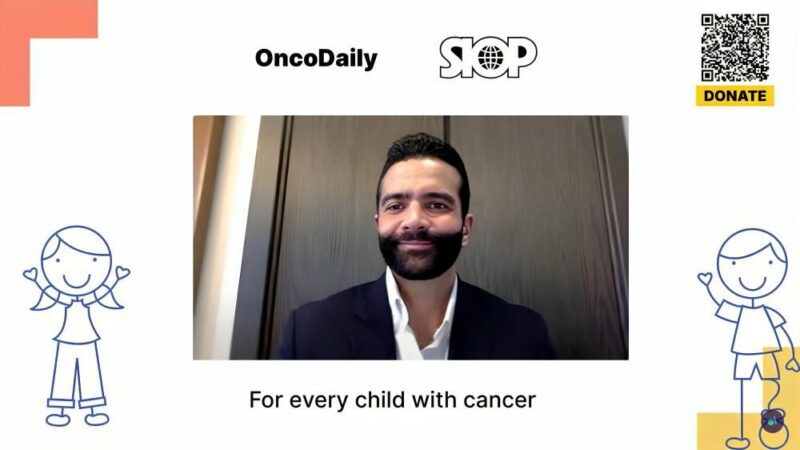
Carl Allen, Chair of the SIOP PARC Programme, spoke passionately about the power of investing in research – especially in low- and middle-income countries. He emphasized that research is more than just data and numbers; it’s about sharing experiences, learning from one another, and working together to improve care for children with cancer worldwide.
By supporting research, we create opportunities for collaboration through cooperative trial groups, allowing doctors and scientists to join forces, share knowledge, and build something greater than what any one institution could achieve alone.
Strengthening research in these regions doesn’t just expand the capacity to study diseases – it empowers local experts, gives hope to families, and ensures that every child, no matter where they are born, has access to the best possible care. Investing in research isn’t just about progress; it’s about fairness, connection, and saving lives together.
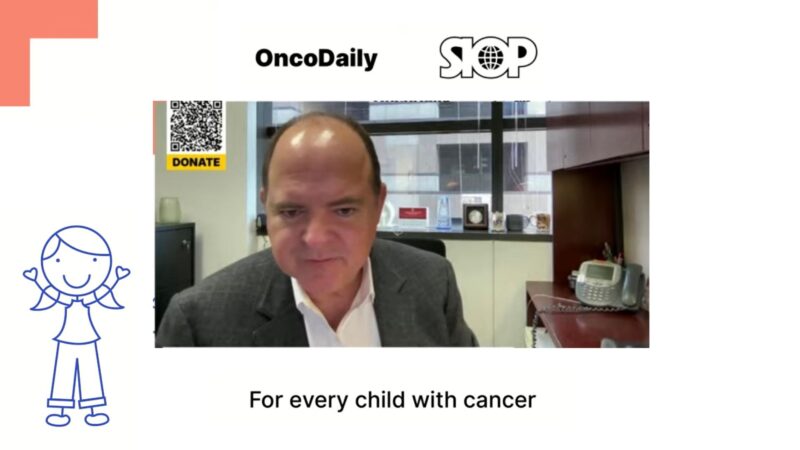
Gregory Raeman, Scientific Director of the Childhood Cancer Data Initiative (CCDI), spoke about the remarkable advances in oncology with precision therapies, which have fundamentally changed cancer treatment, particularly for cancers like lung cancer and melanoma. He emphasized the challenges of treating childhood cancer, noting it is a genetic disease, making it more difficult to address.
He discussed the need for further efforts to identify more molecular drivers, which requires genome and RNA sequencing as well as proteomics. While there have been some advances, he pointed out the challenge of motivating pharmaceutical companies to develop these drugs, as they need regulatory approval across different countries before becoming accessible.
Raeman urged for more collaboration between pediatric cancer investigators and suggested that incentives should be provided to drive this progress.
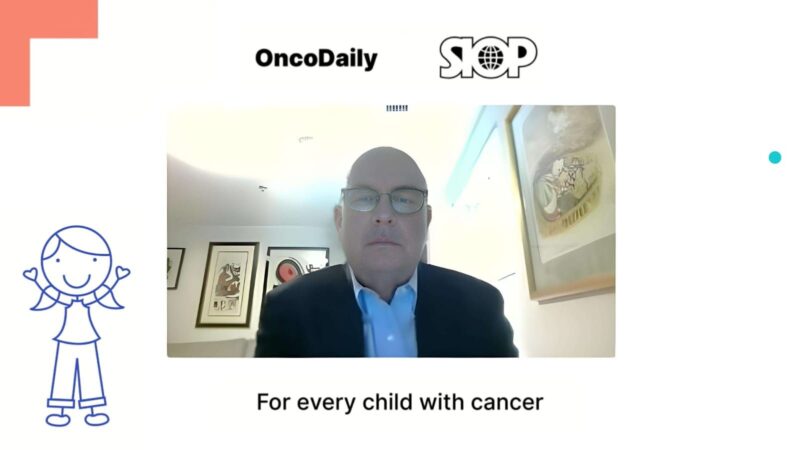
Nai-Kong Cheung, Neuroblastoma Program head at the Memorial Sloan Kettering Cancer Center talked about the ongoing challenges and advancements in cancer treatment, highlighting the toxicity of treatments and the debilitating side effects such as vomiting and infertility.
He emphasized the urgent need for financial support in the cancer community, as funding remains a critical barrier to progress.
He mentioned that over the past few decades, innovations such as vaccine programs and anti-GD2 therapies have emerged, initially without pharmaceutical backing, but now showing promise in reducing side effects. Additionally, powerful isotopes are being developed to enhance treatment efficacy while minimizing toxicity.
As Professor Cheung mentioned, this global effort is not only about ensuring every child’s survival but also about giving them a joyful and healthy future beyond cancer.

Michela Casanova, Pediatric Oncologist at the Fondazione IRCCS Istituto Nazionale dei Tumori di Milano, emphasized the critical need for research and innovation in pediatric oncology, particularly in the development of new drugs. She highlighted the challenges faced in securing industry investment and the limitations of current treatment protocols.
During Oncothon, she stated, “We don’t have enough protocols, and we are facing difficulty in convincing companies to invest in pediatric oncology.”
She also addressed the role of precision oncology, noting, “Precision oncology was considered the solution, but it is true for only a minority of patients—we need pediatric-targeted drugs to truly make a difference.”
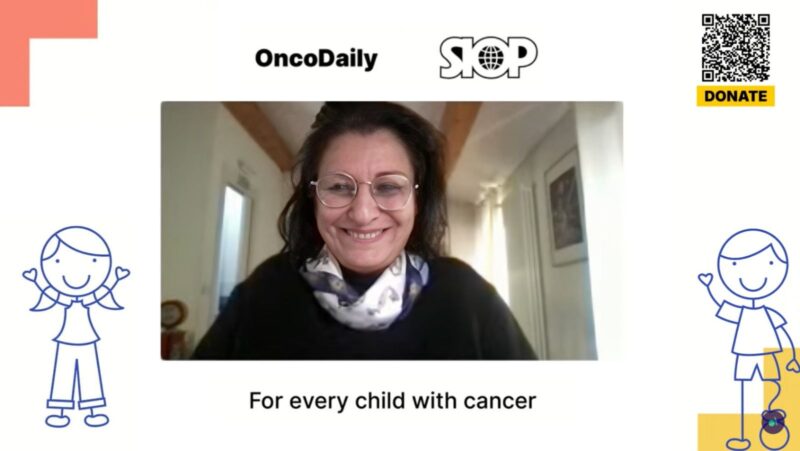
Janneke van der Kamp, CEO of Norgine talked about how all European and Australian-based pharma company historically focused on gastrointestinal diseases but now expanding into pediatric oncology. They emphasize the challenges of drug development in pediatric oncology due to the rarity of cases, which makes large-scale clinical trials difficult. In contrast, adult oncology sees significantly more drug approvals because of larger patient populations.
The speaker acknowledges that large pharmaceutical companies often deprioritize pediatric oncology due to low financial returns, whereas smaller companies like Norgine can focus on such areas by working closely with the medical and patient communities. They stress the importance of collaboration among clinicians, patient organizations, trial sites, and regulatory bodies (EMA, FDA) to advance pediatric treatments.
Additionally, they highlight the growing need to focus on survivorship and quality of life for pediatric cancer patients, advocating for equal attention from regulators and payers. They conclude with optimism about the collaborative efforts in the field to bring transformative therapies to children in need.
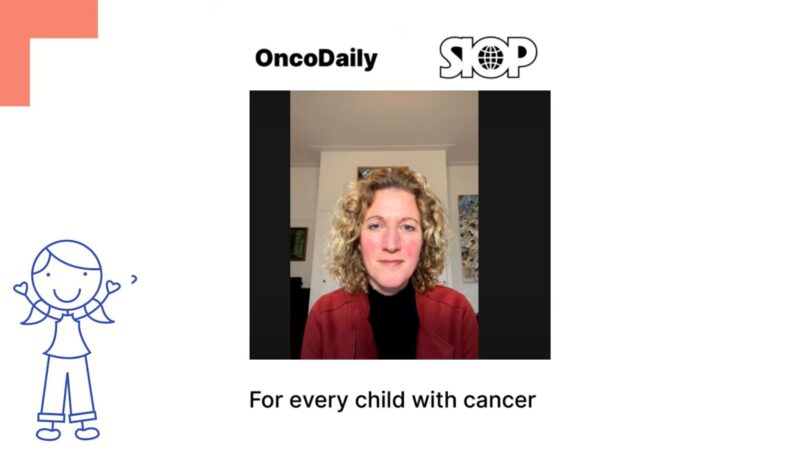
Muhammad Saghir Khan, Co-Chair of the Pediatric Oncology Developing Country (PODC) committee, highlighted the importance of global collaboration in pediatric cancer care, especially in resource-limited settings.
He discussed the role of the Global Health Network in providing guidance to healthcare professionals and emphasized the need for continued education, research, and partnerships. Khan also introduced the SIOP Education Day and G&S scholarships, which support professionals from low-income countries, and announced a new educational framework for global pediatric cancer care.
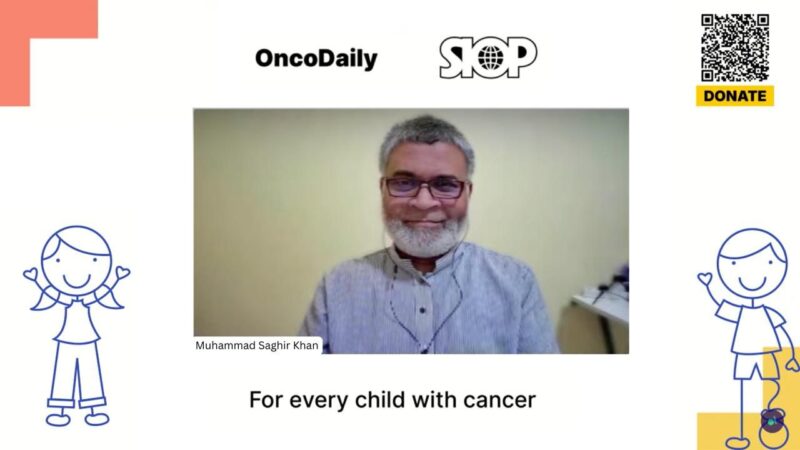
Maite Gorostegui, Chair of the Global Mapping Committee of the International Society of Paediatric Oncology – SIOP, and Neil Ranasinghe, a parent of a cancer survivor and patient advocate, spoke about the importance of mapping pediatric oncology resources worldwide. They emphasized the need for comprehensive data collection to improve access to care and advocate for better healthcare policies.
During Oncothon, Maite Gorostegui Obanos stated, “With the Global Mapping Project, we are working to identify every facility treating children with cancer worldwide, ensuring that no child is left without access to care.”
She also highlighted the critical role of data, saying, “The information we collect is not just for publications – it helps us advise, advocate, and create meaningful change for pediatric oncology patients.”
Neil Ranasinghe reflected on the significance of this initiative, stating, “It’s a privilege to be part of Oncothon and share how our work is helping children with cancer worldwide.”
He further emphasized the impact of policies, noting, “Any measure taken at the government level could have a huge impact on the health of children, especially in resource-limited settings.”
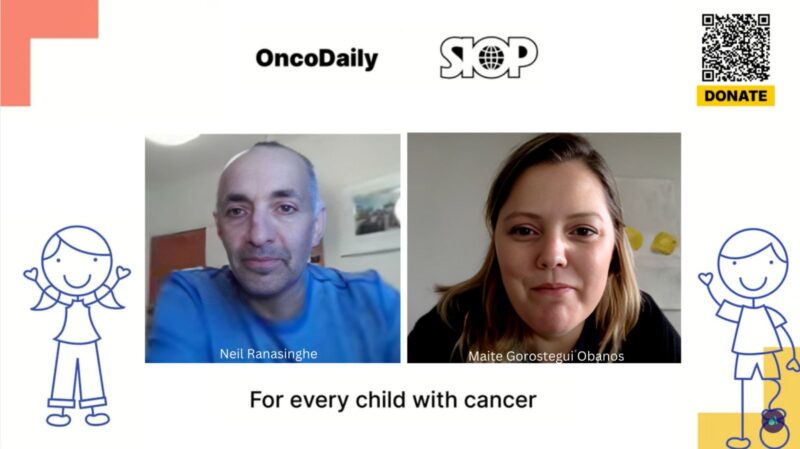
Shant Shekherdimian, Associate Professor and Interim Chief of Pediatric Surgery at UCLA, discussed the challenges in providing surgical care for children with oncologic diseases, particularly in low-resource settings.
He emphasized the importance of comprehensive care systems that go beyond surgery, including child life services, social services, and coordination between oncologists, surgeons, and patient navigators.
Shekherdimian highlighted the need for collaboration and communication across healthcare teams to improve patient outcomes, particularly in fragmented healthcare systems. He also stressed the value of learning from each other globally and continuously improving care through shared experiences.
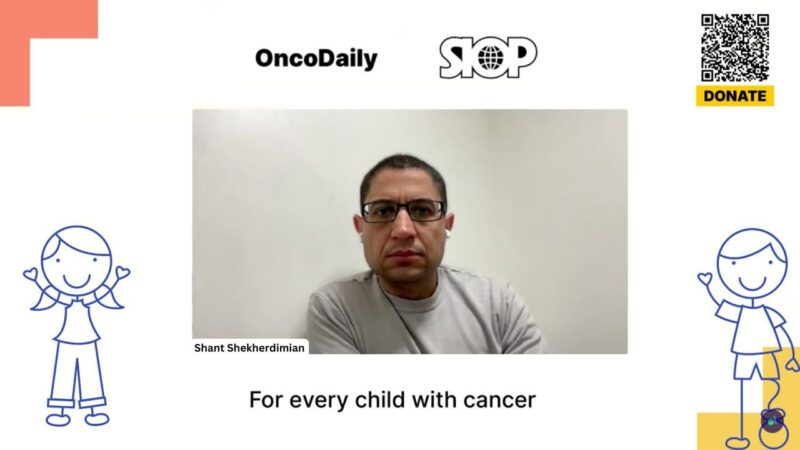
Mike Gillette, Childhood Cancer Advocate, spoke about CureFest, a unique event that unifies the childhood cancer community. More than just a festival, it provides a space for advocates, families, elected officials, and the public to come together in solidarity.
It fosters connections among families, bereaved parents, and survivors while also featuring memorials, rallies, and vigils honoring children affected by cancer.
Since its inception in 2012, CureFest has grown into a multi-day event, becoming a central movement in the fight against childhood cancer. Gillette emphasized the importance of community support and praised the Rally Foundation for its role in sustaining the event.
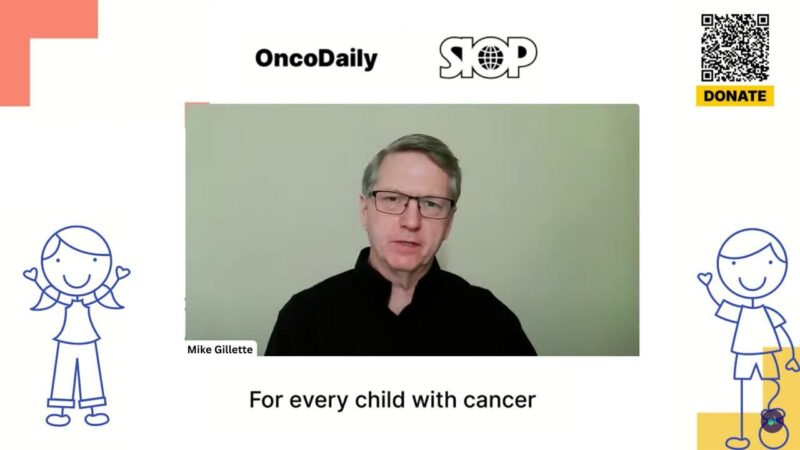
Emily Kallos, Senior Director of Development at Rally Foundation for Childhood Cancer Research, and Emma Strong, President-Elect of the International Society of Pediatric Surgical Oncology, highlighted the power of collaboration in the fight against childhood cancer.
The Rally Foundation for Childhood Cancer Research is a nonprofit dedicated to funding better treatments with fewer side effects and finding cures for childhood cancer. The Rally Foundation for Childhood Cancer Research was Founded in 2005 by Dean Crowe,is a nonprofit organization dedicated to funding better treatments with fewer side effects and finding cures for childhood cancer.
Emily Kallos emphasized the Rally Foundation’s mission to raise awareness and funds for better treatments with fewer long-term side effects, stressing that partnerships – such as those with Arms Wide Open ABA and CureFest – are vital for uniting the childhood cancer community. She underscored the significance of CureFest in Washington, D.C., where families, researchers, and legislators come together to drive meaningful progress.
More than an event, CureFest provides families with support, fosters friendships, and encourages innovative thinking among researchers and funders. She also highlighted the lasting impact of childhood cancer on families, advocating for continued efforts to ensure every child receives the best possible care.
Emma Strong echoed the importance of collaboration, describing CureFest as a powerful display of unity among organizations striving toward a common goal – curing childhood cancer. She reflected on the emotional and transformative experiences of families attending CureFest, particularly bereaved families finding comfort and strength in the community.
She also highlighted the growing role of adolescent and young adult engagement, sharing how these young voices contribute valuable insights on areas needing improvement at policy levels.
Both speakers emphasized that real change in childhood cancer treatment and support can only happen when the community stands together.
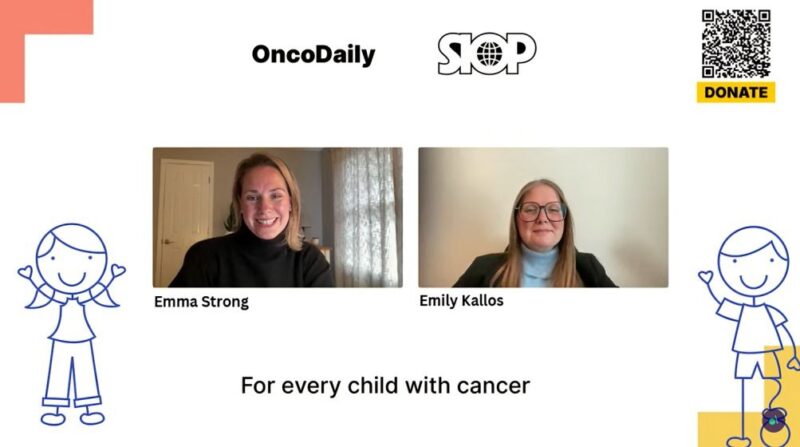
Dena Sherwood, Founder and Executive Director of Arms Wide Open Childhood Cancer Foundation, spoke about the power of collaboration in driving progress for childhood cancer advocacy and research. She emphasized that working together as a united voice is essential for meaningful change.
During Oncothon, she stated, “Collaboration is really the key to making a difference in our community – since our inception sixteen years ago, it has been at the core of our existence.”
She also highlighted the impact of partnerships, saying, “We have been blessed to collaborate with Rally Foundation for over a decade, advancing research and advocacy efforts together.”
Speaking about CureFest, she remarked, “CureFest is a multi-day childhood cancer awareness event held in Washington, DC, bringing together families, advocates, and researchers to stand as one for children with cancer.”
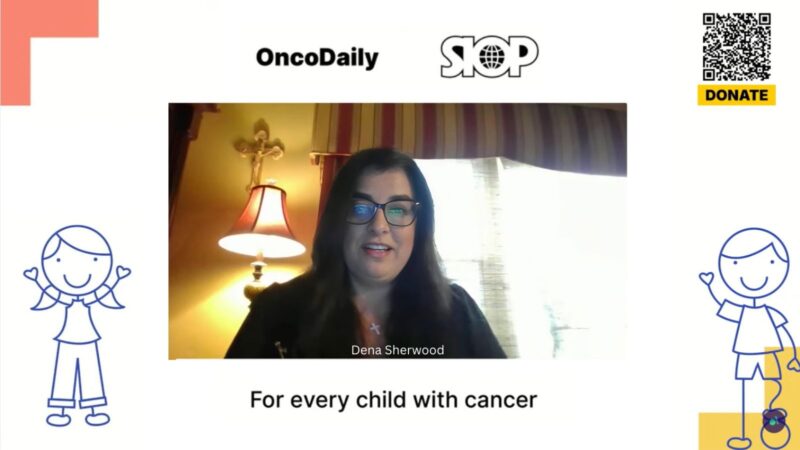
Catharine Young, Ph.D., Former Assistant Director of Cancer Moonshot Policy and International Engagement at The White House, delivered a passionate and inspiring message about the ongoing fight against childhood cancer, emphasizing the importance of resilience, collaboration, and urgency.
She spoke about the profound impact of childhood cancer on families, highlighting the bravery of children undergoing treatment and the unwavering commitment of scientists, clinicians, and advocates working to bring about change.
Drawing attention to the Biden Cancer Moonshot, an initiative launched in 2022, Ms. Young reinforced the idea that no child, regardless of location, should be left behind in the search for better treatments. She emphasized the need for transformational change, urging continued efforts in funding, collaboration, and urgency to ensure a future where no child’s life is defined by cancer.
“Childhood cancer doesn’t wait, and neither should we”, said Catherine Young.

Laura Bray, Founder of Angels for Change, spoke passionately about the urgent need to strengthen the pharmaceutical supply chain to prevent drug shortages, particularly for pediatric cancer patients. She emphasized that a fragile supply chain directly impacts patient care and that addressing these vulnerabilities is critical.
During Oncothon, she stated, “This is the supply chain that fills the hands that save our people. If it’s breaking more than ever before, their hands are empty, and our patients can’t get care.”
She highlighted the systemic challenges, explaining, “Pediatric cancer patients experience drug shortages at a 90% higher rate than other disease populations, and their shortages last 30% longer.”
Bray also underscored the importance of proactive solutions, saying, “While I can’t build the future cures, I can ensure that this supply chain is stronger and more resilient so that today’s therapies and tomorrow’s cures reach every patient in need.”
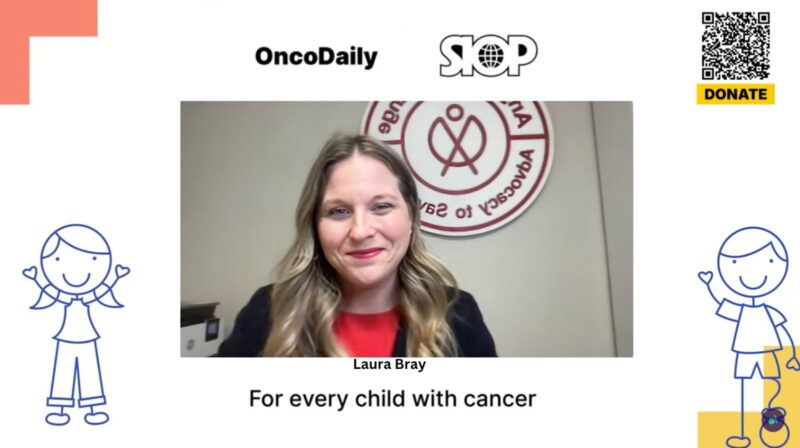
Gabriele Calaminus, Past President of International Society of Paediatric Oncology – SIOP and Senior Consultant at the Department of Paediatric Hematology and Oncology, University Children’s Hospital in Bonn, talked about the global efforts to improve childhood cancer care, emphasizing the importance of collaboration and tailored solutions.
Dr. Calaminus shared insights from her 30 years of experience in pediatric oncology, noting the significant disparities in access to care between high-income and low- and middle-income countries. She highlighted the role of the International Society of Pediatric Oncology (SIOP) and the World Health Organization’s Global Initiative for Childhood Cancer in addressing these challenges.
The goal to improve global survival rates to 60% by 2030 was underscored, despite the difficult realities on the ground. Dr. Calaminus stressed the need for localized solutions, such as transport and housing support for families, as well as the value of spreading knowledge through virtual platforms to educate caregivers worldwide.
She also discussed the importance of palliative care, especially in regions where survival rates remain low, ensuring that children receive the best possible care and quality of life until the end. Dr. Calaminus concluded by reinforcing the need for global collaboration and the importance of advocating for childhood cancer on the WHO agenda to influence national cancer plans and policies.
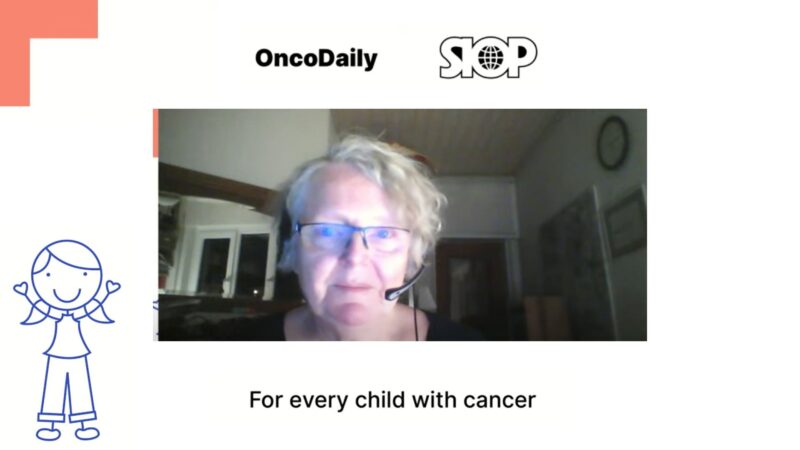
Leslie Woodfill, Director of the Childhood Cancer Coalition, emphasized the urgent need for support and resources for families affected by childhood cancer. She highlighted the emotional and financial burdens families face, as well as the disruptions to a child’s everyday life.
The Childhood Cancer Coalition provides financial aid, educational resources, and emotional support across Eastern Washington, Northern Idaho, and Western Montana.
Ms. Woodfill also underscored the importance of advocacy, pushing for increased federal research funding and community awareness. She encouraged individuals and businesses to contribute in any way they can, reinforcing the belief that no child or family should have to face cancer alone.
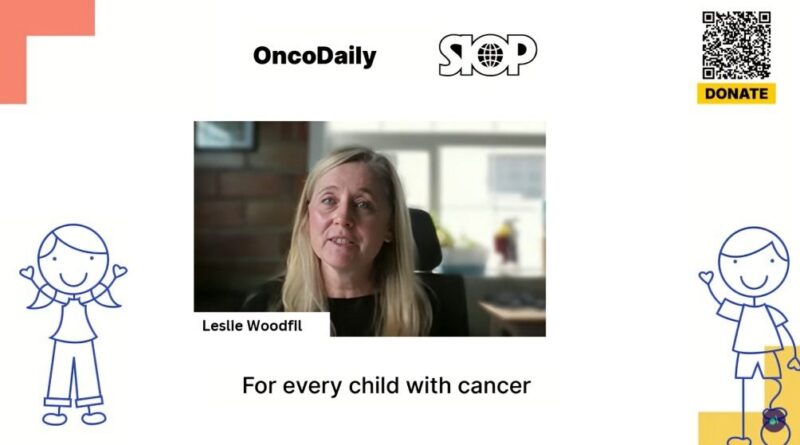
Carmen Uscatu, Founding Member and President at Give Life NGO, shared a powerful message about the stark disparities in childhood cancer survival rates between Eastern and Western Europe.
Highlighting the 11% difference in five-year survival rates, she emphasized the challenges faced by children with cancer in Romania, including a lack of dedicated ICU departments, absence of clinical trials, and limited multidisciplinary teams.
She shared the success story of the Give Life Foundation, which raised $315,000 and mobilized 8,000 companies to build the first comprehensive childhood cancer center in Romania, equipped with the best medical technologies.
Ms. Uscatu called for centralized care and research, noting that such efforts could significantly improve survival rates and quality of care across Eastern Europe. Invoking Einstein’s words, she said: “In the middle of difficulty lies opportunity.”
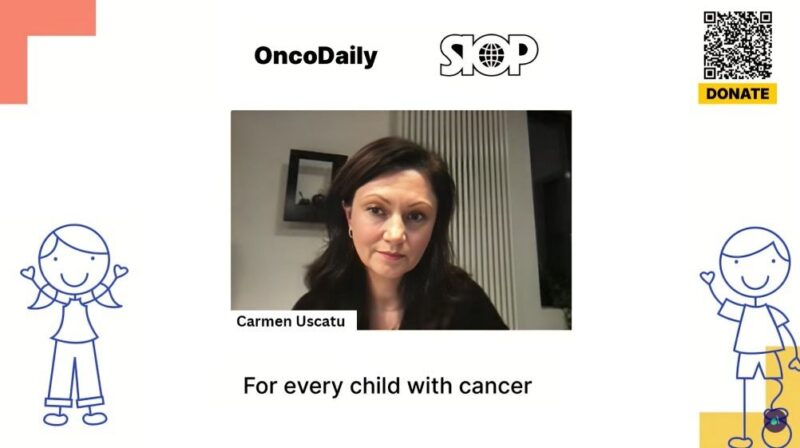
Nickhill Bhakta, Associate Member (Associate Professor) at St. Jude Children’s Research Hospital, highlighted the urgent need to close the global gap in childhood cancer care. He emphasized that while 400,000 children develop cancer each year, only half are diagnosed, and many receive incorrect diagnoses or lack access to life-saving treatments.
Bhakta underscored the progress made through the WHO-St. Jude Global Initiative for Childhood Cancer, which has expanded from zero to 76 countries incorporating childhood cancer into national cancer control plans.
He also highlighted the Global Platform for Access to Childhood Cancer Medicines, a $200 million initiative launched by St. Jude in partnership with WHO and UNICEF. This program aims to provide free, high-quality cancer drugs to 120,000 children across 50 countries over the next five to seven years.
Beyond access to medicines, Bhakta stressed the importance of standardized treatment protocols to improve survival rates. He introduced the ARIA Guide, a groundbreaking effort involving over 600 healthcare providers from 80+ countries, creating 122 clinical guidelines tailored to different resource settings. This initiative ensures that even in low-resource environments, clinicians have structured guidance to maximize patient outcomes.
Bhakta concluded with a call to action, urging the global oncology community to sustain collaboration, innovation, and policy-driven change. He emphasized that while challenges remain, significant strides are being made, offering real hope for children with cancer worldwide.
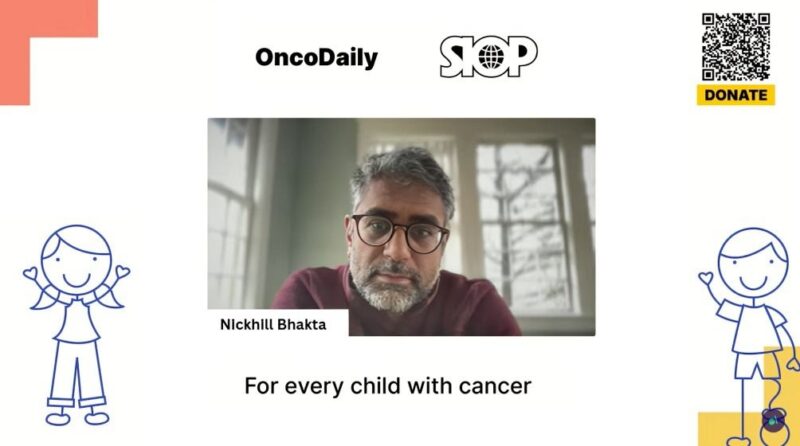
Ricardo Garcia, CEO and Founder of Oncoheroes Biosciences, emphasized his company’s unique commitment to childhood cancer research.
He reflected on his personal journey, inspired by his 19-year-old son, and expressed gratitude for the opportunity to be part of the event. Garcia highlighted the importance of dedicated efforts in pediatric oncology and the need for continued collaboration to advance treatments for young cancer patients.
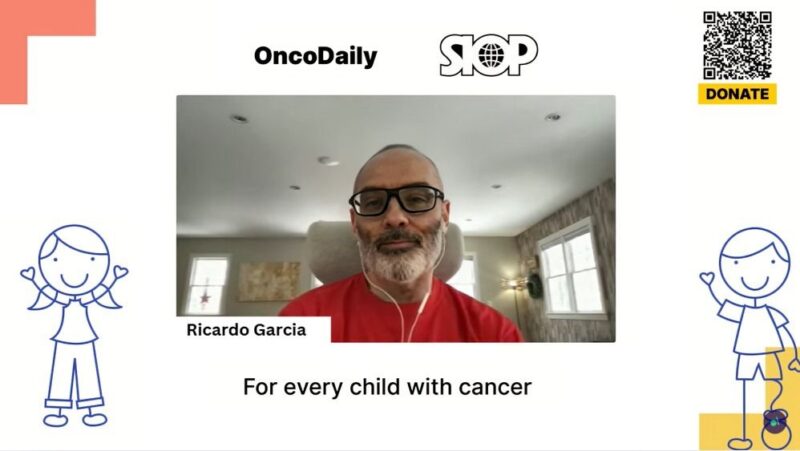
Cesare Spadoni, Founder, Chief Operating Officer, and Member ofthe Board of Directors at Oncoheroes Biosciences, shared a deeply personal journey that led them to pediatric oncology. Initially working in drug discovery and business development for various pharmaceutical companies, his perspective on childhood cancer changed profoundly when his first daughter passed away from cancer in 2006.
This personal tragedy revealed the critical gaps in pediatric drug development, inspiring him to dedicate his career to improving treatments for children with cancer. Mr. Spandoni established a foundation in the UK to support this cause and later recognized the need for a biotech company focused on advancing pediatric oncology treatments.
He co-founded a company dedicated to accelerating drug development for childhood cancer, addressing the unique challenges that often leave young patients without effective treatment options. Speaking at the OncoThon, Mr. Spandoni emphasized the importance of global collaboration, expressing excitement about the diverse voices coming together to drive change in pediatric oncology.
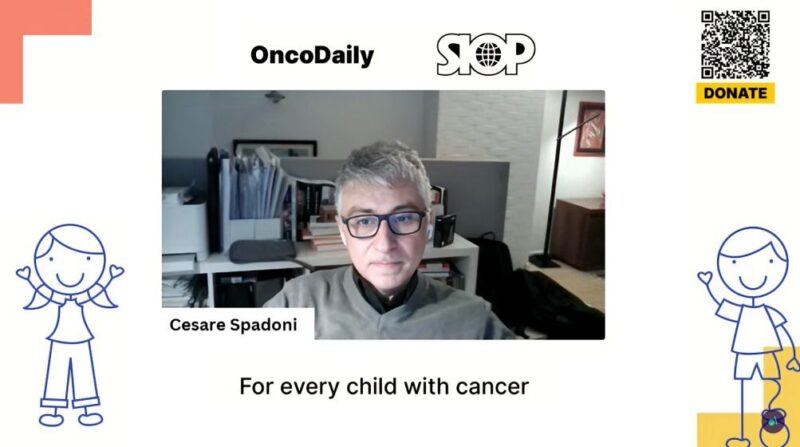
Gavin Lindberg, Co-Founder and President of The EVAN Foundation, delivered a powerful and deeply personal message during Oncothon, sharing the heartbreaking story of his son, Evan, who passed away from stage IV neuroblastoma at just seven years old.
Reflecting on his son’s journey, he said, “Evan received essentially every mode of cancer therapy that you can think of – multiple surgeries, high-dose chemotherapies, immunotherapy, radiation – on and on. During those four years, he was enrolled in four phase one clinical trials before the age of seven. He was a pioneer of sorts in utilizing not only immunotherapies but also targeted therapies for neuroblastoma.”
Lindberg also spoke about the unacceptable challenges that children with cancer and their families face, stating, “What children like my son have to go through is not only medically unacceptable—the toxicity, the challenges, the difficulties—but it is morally unacceptable too.”
He emphasized the urgent need for change, urging the community to act with determination, saying, “We adults need to match the courage and strength of these kids who are fighting for their lives. We need to be their voice – their loud, tireless, do-not-take-no-for-an-answer voice in this fight.”
Quoting Dr. Martin Luther King Jr., he passionately reminded everyone of the urgency of the cause: “Tomorrow is too late. We need it today. It is indeed past time for vigorous and positive action for kids with cancer.”
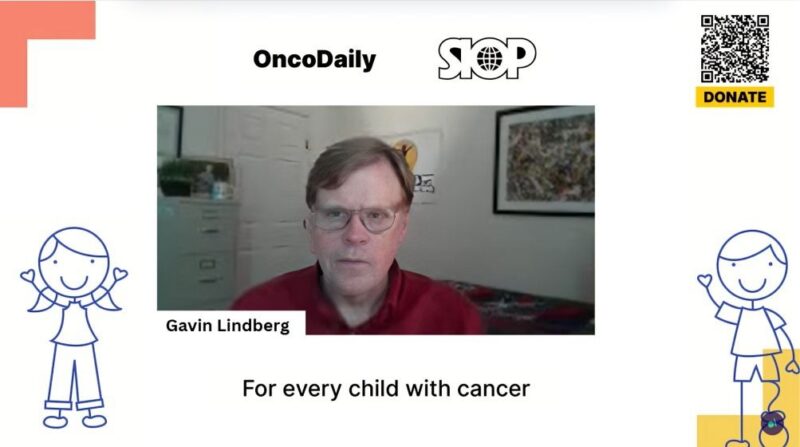
Read more posts featuring OncoThon on oncodaily.com.


